The labor reform conciliation is now complete, and there was no need for discussion. Representative María Fernanda Carrascal, the rapporteur for the labor reform and conciliator, announced that the same text approved in the Senate will be adopted."We have decided that, taking into account that the Senate has adopted more than 85 percent of the text we reconciled over two years and that very regressive articles were reversed, we will adopt that text. We believe it improves some of the reform's points," Carrascal concluded.
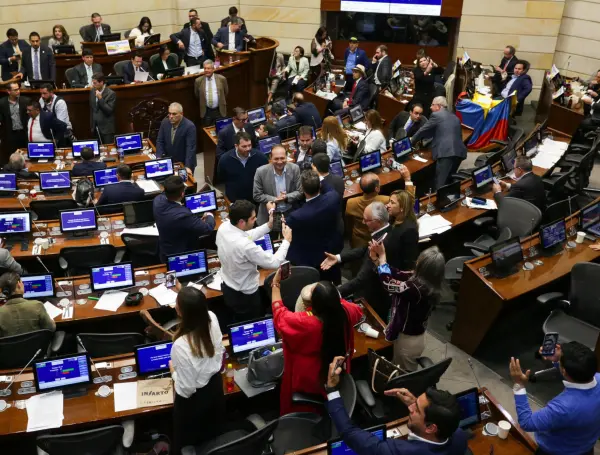
Thus, the conciliation report is ready. It is the same proposal that the Senate adopted in recent weeks. It only needs the signature of the rapporteur group, made up of two senators and two representatives, and then the approval of the two plenary sessions is required.
This document could be ready tonight for announcement at the respective legislative sessions this Thursday and publication in the Congressional Gazette. Under this procedure, the plenary sessions would simply vote on the agreed text on Friday, June 20, the last day of the legislative session and the date on which the bill would be scuttled if it is not fully approved.
Interior Minister Armando Benedetti had said this Wednesday morning in an interview with EL TIEMPO that the Senate's text had made more progress than the one passed by the House six months ago.
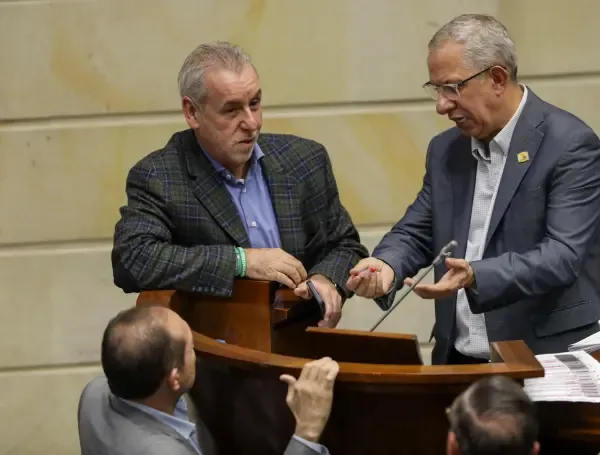
"What was approved in the Senate is much more important and more progressive than what came from the House. The achievements that were reached are true trophies for labor rights, for unions, among others," said the policymaker.
However, with this decision, the Petro government is sacrificing two points they were going to insist on during the conciliation:"The agrarian contract is missing, and the right for women to be able to go to the doctor if they experience an abnormality in their menstrual period or severe pain. These are the two things we were missing in the Senate," said Minister Benedetti.
While it is true that the Senate text had greater advances such as higher remuneration for SENA apprentices in the school stage, 75 versus 65 percent of the minimum wage, and included an order to the government to assume an agricultural contracting policy, the determination goes against the government's insistence on prioritizing what was achieved in the Chamber.
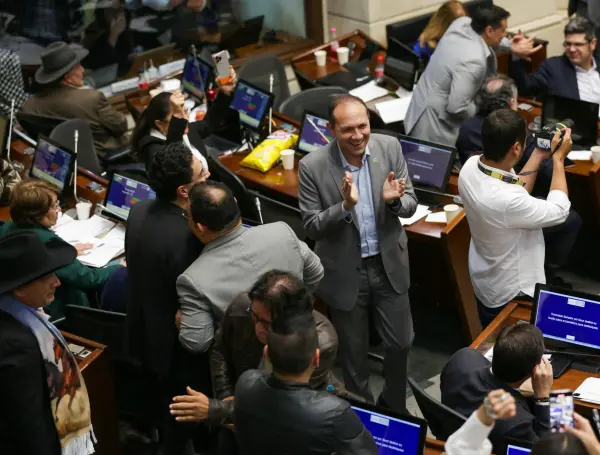
The decision announced by Carrascal means that the labor reform is getting closer to becoming law. All that's missing is the approval of both plenary sessions. In addition to achieving the second social reform of the Petro administration, this means that Gustavo Petro's government has no further arguments to maintain the decree.
Both on Tuesday night, during the Cabinet meeting, and in a tweet he published this Wednesday, the president announced that he would only repeal the decree that irregularly called the referendum once the labor reform becomes final.
"The discussion is not a legal one. Congress has the final say, after reaching the final result. Of course, the Senate's board of directors can use the suspension to stop the conciliation and end the recently acquired rights of millions of Colombian workers, or they can keep their word," said Petro after learning that the Council of State was suspending the effects of what is known as the 'decree'.
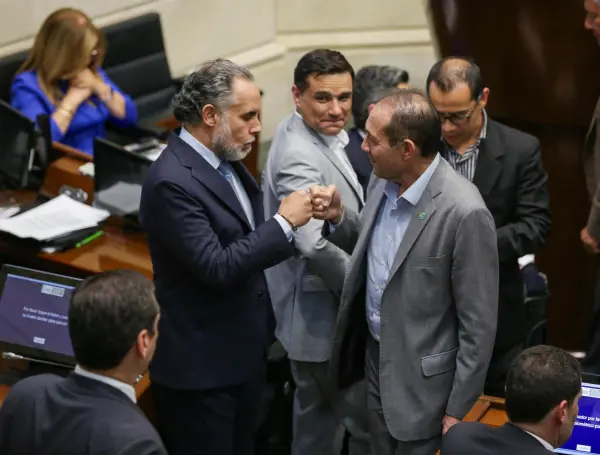
How was the decision?
On Wednesday morning, House Speaker Jaime Raúl Salamanca announced his chamber's two conciliators: the reporting coordinators María Fernanda Carrascal (Pact Histórico) and Juan Camilo Londoño (Alianza Verde). Both are close to Gustavo Petro's administration.
However, Efraín Cepeda, president of the Senate, delayed his appointment. It was only around 6 p.m. that he announced that he would assign the discussions to Senators Sammy Merheg (Conservative Party) and Carlos Abraham Jiménez (Radical Change).
Both were opposed to the reform, so it was presumed they could hamper discussions aimed at reconciling the two corporations' proposals. Furthermore, due to the delay in appointing them, almost an entire day had been lost to discussing the articles that would be included in the final text.
In the end, the chosen formula ensures that the text will be ready by this Wednesday, and that all that remains is to obtain the signatures before the final vote proceeds in Friday's sessions.
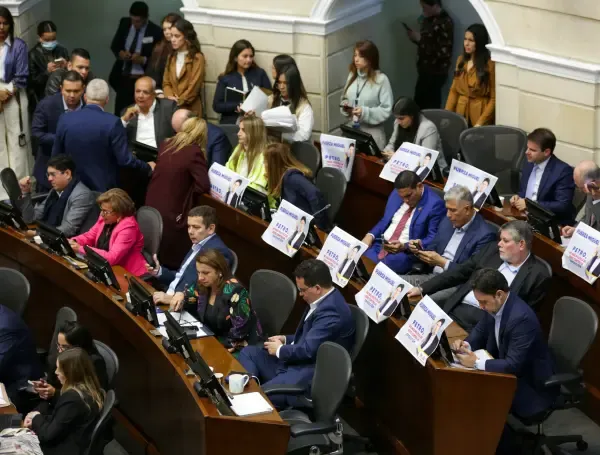
What were the main differences?
There were not many differences between the House and Senate texts. Although the Petro government, in the words of Armando Benedetti, was going to place special emphasis on conciliation in the areas of agricultural contradiction and menstrual leave.
In the first case, the House eliminated the articles related to the agricultural contract. In contrast, the Senate processed an article that contemplated this possibility through another law. "In the first year of this law's validity, the state will formulate a public policy to support agricultural work. This policy will aim to support, accompany, and protect national productive units dedicated to agricultural activity, so that their workers can enjoy all the rights and guarantees enshrined in the Constitution and the laws, taking into account the specificities of this sector," states Article 40, which was approved by the plenary.
On the other hand, regarding what has been called menstrual leave, the Senate approved a text that explicitly states that only women and menstruating people may use this option"for the diagnosis and treatment of endometriosis." In the House, however, it was extended to any"working person who experiences disabling menstrual cycles, dysmenorrhea, or abdominal tension due to menstruation."
One of the biggest divergences between proposals was on paternity leave. “Paternity leave in Colombia will progressively increase until reaching four (4) weeks in 2026, as follows: in 2025 it will rise to three (3) weeks, in 2026 it will reach four (4) weeks”, says article 49 approved in the Chamber. However, in the Senate it was left as is: 14 days. The speaker of the Chamber, María Fernanda Carrascal, was very critical of the non-inclusion of this point as her corporation had voted.
Another area of disagreement was the compensation of SENA apprentices in their school years. The House of Representatives decided to set it at 60 percent of the minimum wage, while the Senate decided to set it at 75 percent, a difference of 15 percentage points. It was on this and other points that Minister Benedetti stated: "What was approved in the Senate is much more important and more progressive than what came from the House of Representatives."

